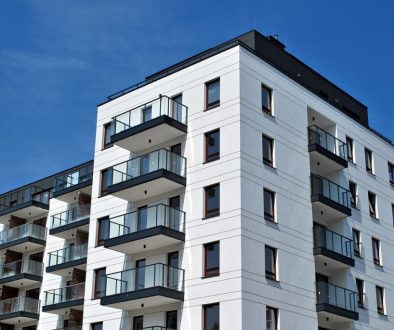Buy or Lease? A Commercial Property Decision Guide
Buy or Lease? A Commercial Property Decision Guide
In the ever-evolving world of business, one of the most critical decisions you may face is whether to buy or lease commercial property. This decision can significantly affect your financial health, operational flexibility, and long-term success. In this comprehensive guide, we will delve into the pros and cons of buying vs. leasing commercial property, helping you navigate this vital choice for your business. We will explore financial implications, market trends, and practical considerations to empower you to make an informed decision that aligns with your goals.
Introduction
Making the choice between buying or leasing commercial property is not just about numbers; it’s a complex decision impacted by various factors including your business strategy, financial situation, and market conditions. In today’s competitive landscape, understanding the nuances of each option can provide you with a strategic advantage. This post will guide you through the critical aspects of buying and leasing commercial properties, highlighting the financial implications, legal considerations, and market trends that can influence your decision. By the end of this guide, you will have the information necessary to make a confident choice for your enterprise.
Understanding the Benefits of Buying Commercial Property
- Equity Building: One of the most significant advantages of purchasing commercial property is the ability to build equity. As you pay down your mortgage, your ownership stake increases, offering potential financial rewards in the long run. According to the National Association of Realtors, commercial property values have historically appreciated, providing owners with capital gains.
- Stability and Control: Owning your commercial space offers a sense of stability. You are not subject to the terms and conditions of a lease, which can change at the landlord’s discretion. Moreover, you have the freedom to modify the property as per your business needs without seeking landlord approval, which is essential for businesses requiring custom space.
- Tax Benefits: Property ownership comes with various tax advantages. Mortgage interest and depreciation can often be deducted from your taxable income, reducing the overall tax burden. A well-structured purchase can lead to substantial savings over time.
- Long-Term Investment: While buying commercial property requires a significant upfront investment, it can serve as a long-term asset that appreciates over time. This real estate can also diversify your investment portfolio and be a hedge against inflation, as property values tend to rise with inflation trends.
- Potential Rental Income: If you have extra space, you can lease it to other businesses, generating additional income to offset your mortgage or generate profit. This can be particularly beneficial in high-demand areas where rental rates are favorable.
The Advantages of Leasing Commercial Property
- Lower Upfront Costs: Leasing commercial property typically requires a smaller upfront investment compared to buying. You may only need to pay first and last month’s rent, security deposits, and any necessary renovations. This allows businesses with limited capital to allocate funds to other critical areas.
- Flexibility: Leasing provides greater flexibility, particularly for new businesses or those experiencing rapid growth. With a lease, businesses can relocate to a more suitable space as they grow without the burden of selling a property. This adaptability can be crucial in a fast-paced market where business needs can change quickly.
- Maintenance and Repairs: In most lease agreements, the landlord is responsible for major maintenance and repairs, relieving you of additional costs and responsibilities. This allows you to focus on your core business operations without the distractions of property management.
- Market Responsiveness: Leasing allows businesses to stay agile in an ever-changing market. If market conditions shift, a lease can be renegotiated or vacated without the complexities involved in selling a property.
- Access to Prime Locations: Leasing can provide access to more desirable locations that may be unaffordable to buy. This can enhance your business visibility and customer reach, which is vital for growth.
Financial Considerations When Choosing Between Buying and Leasing
The financial aspects of buying versus leasing commercial property are often at the forefront of decision-making. Here are key considerations to keep in mind:
- Cash Flow: Evaluate your current cash flow. While leasing can preserve cash flow due to its lower initial costs, buying may offer more long-term financial stability. Analyze how each option aligns with your financial situation and future cash flow projections.
- Total Cost of Ownership: When buying, consider not just the purchase price but also the costs of maintenance, property taxes, insurance, and potential vacancies. For leasing, assess the total lease payment, including rent increases over time and any additional costs for utilities and maintenance.
- Opportunity Costs: Consider how investing in property may affect your ability to invest in other areas of your business. Capital locked in real estate may limit your liquidity and ability to pursue other opportunities.
- Risk Assessment: Real estate can be influenced by external market conditions. A downturn in the economy may affect property values and your ability to sell. Conversely, lease agreements can be renegotiated or exited more easily if your business direction changes.
- Financing Options: Understand the financing options available. Mortgages for commercial properties may vary in terms of interest rates, down payments, and loan structure. Consult with financial advisors to determine the best financing strategy for your situation.
Legal and Regulatory Considerations
When deciding between buying and leasing, it’s essential to understand the legal implications of each option:
- Zoning Regulations: Ensure the property complies with local zoning laws for your intended use. Zoning issues can complicate both purchasing and leasing if not properly researched.
- Lease Terms and Conditions: In a lease, carefully review terms and conditions. Understand the duration of the lease, renewal options, rent increases, and any clauses regarding property modifications.
- Contractual Obligations: When buying, ensure all contractual obligations are clear, including maintenance responsibilities and any contingencies involved in the sale. Working with an attorney can help ensure compliance with local laws and regulations.
- Due Diligence: Perform due diligence on any property you consider purchasing. This includes inspecting the property, reviewing financial records, and understanding any liens or encumbrances.
- Exit Strategies: Whether buying or leasing, have a clear exit strategy in mind. For buyers, this may involve understanding how to sell the property effectively. For lessees, know the process for terminating a lease or negotiating favorable terms for renewal.
Market Trends and Their Impact on Your Decision
The commercial real estate market is continuously evolving, influenced by economic factors, technological advancements, and changing consumer behaviors. Here are some current trends to consider:
- Growing Demand for Flexible Spaces: Modern businesses increasingly seek flexible office spaces that allow for collaboration and adaptability. This trend can impact both leasing and buying decisions, leading to more mixed-use developments and co-working spaces.
- Remote Work Impact: The rise of remote work has altered demand for traditional office spaces. Many businesses may opt to lease smaller spaces or reconfigure existing properties to accommodate hybrid work models.
- Sustainability and Energy Efficiency: There is a significant shift towards energy-efficient buildings. If purchasing, consider investing in properties that offer sustainable features, as they may have long-term cost savings and attract eco-conscious tenants.
- Urbanization and Location Preferences: As urban areas grow, the demand for commercial spaces in these locations rises. Understanding market trends in your desired area can inform whether to buy or lease based on future growth potential.
- Interest Rates: Keep an eye on interest rates as they can significantly affect the cost of purchasing commercial property. Lower rates generally make buying more appealing, while rising rates can favor leasing as borrowing becomes more expensive.
Best Practices for Making the Right Decision
To navigate the complexities of buying versus leasing commercial property, consider these best practices:
- Conduct Thorough Research: Stay informed about market trends, property values, and economic indicators. Use this knowledge to assess whether the timing is right for buying or leasing.
- Consult Professionals: Engage real estate agents, financial advisors, and legal experts to guide your decision-making process. Their expertise can help you navigate potential pitfalls and ensure a successful transaction.
- Evaluate Your Business Needs: Consider your current and future business needs. Assess how much space you require, the duration of your stay in a location, and your growth projections. These factors can heavily influence your decision.
- Create a Comprehensive Budget: Develop a clear budget that outlines all potential costs associated with both buying and leasing. This will allow you to see the financial implications of each option and make a more informed choice.
- Plan for the Future: Think about where you want your business to be in the next 5 to 10 years. This forward-looking approach can help determine the best property solution for your long-term success.
Conclusion
Deciding whether to buy or lease commercial property is a significant choice that requires careful consideration of various factors, including financial implications, flexibility, and market trends. Each option has its benefits and challenges, and your decision should align with your business objectives, financial capabilities, and growth aspirations.
In summary, consider your cash flow, long-term goals, and market conditions while seeking guidance from professionals in the field. Whether you choose to buy or lease, making an informed decision will set the foundation for your business’s success. Take the time to assess your options, and feel confident in the path you choose. For more personalized assistance and to explore commercial property opportunities, contact us today and start your journey towards securing the perfect space for your business.



